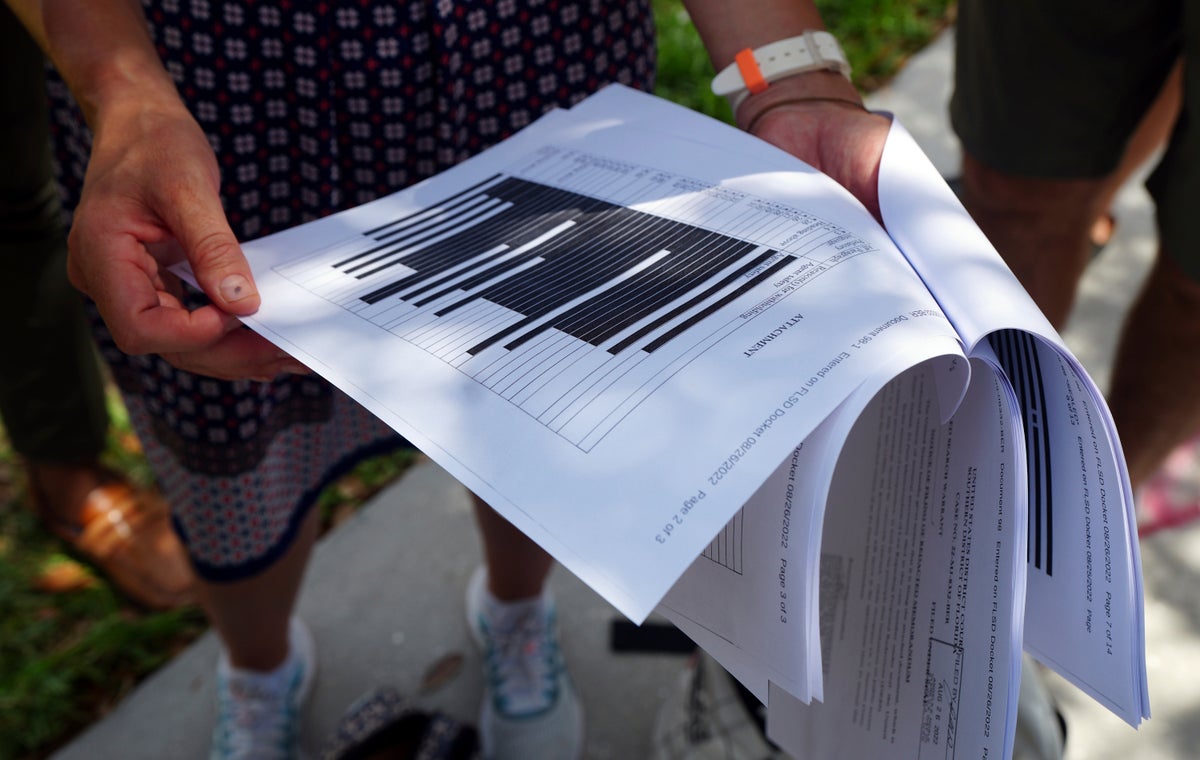
A federal judge in Florida — who was appointed by Donald Trump — has suggested that she might be inclined to grant the former president his request to have a “special master” review documents seized by the FBI from his Mar-a-Lago home.
Judge Aileen M Cannon of the federal district court for the Southern District of Florida signalled on Saturday that she agreed with Mr Trump and his lawyers that an impartial, third-party lawyer should be involved in reviewing the documents. However, she added that her order “should not be construed as a final determination on plaintiff’s motion”.
She gave the government until Tuesday to present its arguments in the case and scheduled a court hearing on Thursday in West Palm Beach, Florida.
On Friday, the US Department of Justice released a heavily redacted document that explained why the FBI searched the former president’s Florida home earlier this month. Trump and his lawyers called the search of his Mar-a-Lago home “politically motivated, overboard and shockingly aggressive.”
They also said that the Justice Department and the FBI had long treated the former president “unfairly.”
Immediately after the redacted document was made public, the former president requested a neutral third party or a “special master” to review the documents seized from his Florida mansion during the FBI search.
“The few lines that are unredacted raise more questions than answers,” the former president’s lawyers said.
The judge also ordered the Justice Department to submit, under seal, a more detailed list of the materials that the FBI had taken. She also asked for an update on the federal government’s review.
Legal experts believe that the notice by Judge Cannon on Saturday could be seen as a victory in the Trump camp.
Meanwhile, Mr Trump has denied any wrongdoing and offered several explanations for the presence of classified documents at his home. His camp said: “As we can all relate to, everyone ends up having to bring home their work from time to time. American presidents are no different.”
It continued: “President Trump, in order to prepare for work the next day, often took documents, including classified documents, to the residence. He had a standing order that documents removed from the Oval Office and taken to the residence were deemed to be declassified the moment he removed them.”







